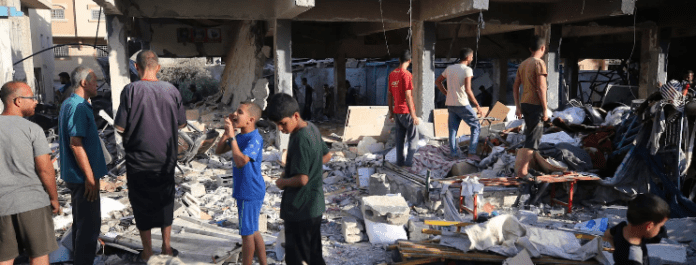In one of the deadliest escalations between Israel and Hezbollah since their 2006 war, at least 492 people have been reported killed in Lebanon due to intensified Israeli airstrikes. These strikes have targeted Hezbollah strongholds along the Israel-Lebanon border, significantly increasing tensions in a region already on the brink of full-scale conflict.
The Israeli military has stated that over 300 targets were hit in a massive barrage of airstrikes. The targets were reportedly Hezbollah military positions, missile launch sites, and infrastructure that the Israeli Defense Forces (IDF) claim are part of the group’s military apparatus. The air campaign, which started as retaliation for recent cross-border rocket attacks by Hezbollah, has grown in scope as Israel attempts to dismantle the militant group’s capabilities along the northern border.
Background of the Conflict
Hezbollah, a Lebanese Shia militant group, has been a longstanding adversary of Israel, with its origins rooted in opposition to Israel’s occupation of Southern Lebanon, which ended in 2000. The 2006 war between Israel and Hezbollah resulted in heavy casualties on both sides, and since then, sporadic skirmishes and proxy engagements have continued. However, the scale and intensity of the recent strikes are reminiscent of the full-scale conflict witnessed during the 2006 war.
Recent tensions have been fueled by broader regional developments, including Hezbollah’s support for Syrian President Bashar al-Assad during the Syrian Civil War and its close alliance with Iran. Israel, for its part, views Hezbollah’s growing arsenal of advanced rockets and drones as a direct threat to its security.
Civilian Casualties and Humanitarian Crisis
The toll on civilians has been significant, with many of the 492 casualties reported to be non-combatants, including women and children. Residential areas, already crippled by Lebanon’s ongoing political and economic crises, have been further devastated by the strikes. Many Lebanese civilians, particularly in the southern regions near the Israeli border, have been displaced, fleeing to other parts of Lebanon or seeking refuge in neighboring countries.
International aid organizations have expressed alarm over the deteriorating humanitarian situation. The country is already grappling with severe economic collapse, exacerbated by the Beirut port explosion in 2020, and the ongoing strain from hosting millions of Syrian refugees. The intensified conflict now threatens to push Lebanon further into crisis, with urgent calls for a ceasefire and international intervention to address the mounting humanitarian needs.
Global Reactions
The international community has responded with a mix of alarm and calls for de-escalation. The United Nations and various world leaders, including Canadian Prime Minister Justin Trudeau, have condemned the violence and urged both sides to step back from the brink of an all-out war. Trudeau, speaking at the UN, emphasized the need for a global humanitarian response to the growing crisis in Lebanon and warned that the escalating conflict could destabilize the wider region.
Meanwhile, Hezbollah’s leader, Hassan Nasrallah, has vowed continued resistance against Israeli aggression, indicating that Hezbollah will not back down despite the heavy toll the strikes have taken on Lebanon. Nasrallah’s rhetoric has raised concerns that Hezbollah may retaliate with more rocket attacks or potentially even wider military engagement.
Risks of Broader Regional War
The situation remains precarious, as experts warn that further escalations could lead to a broader regional conflict. Hezbollah’s close ties with Iran raise the risk that Iranian-backed militias elsewhere in the Middle East, particularly in Iraq and Syria, could become involved, drawing the conflict beyond Lebanon’s borders. Israel’s northern front is also strategically critical, with any significant Hezbollah attacks on Israeli territory potentially triggering a wider Israeli military response.
At this point, both sides appear locked in a cycle of retaliation, with no immediate signs of de-escalation. The coming days will likely determine whether this conflict continues to spiral out of control or if diplomatic efforts can contain the violence before it leads to further catastrophe.
Conclusion
The recent Israeli strikes on Lebanon represent a dramatic escalation in the long-standing conflict between Israel and Hezbollah. As civilian casualties mount and international pressure grows for a ceasefire, the risk of the conflict expanding into a broader regional war remains a critical concern. The situation underscores the fragility of peace in the Middle East and the potential for localized conflicts to ignite wider, devastating consequences.





